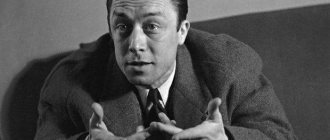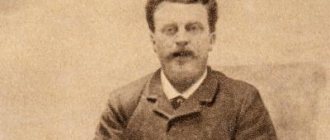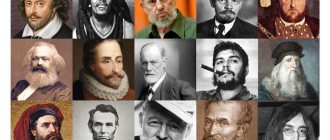Everyone says they want to be free and independent. But these are just words. What exactly do we want? And why? What is freedom? These complex questions have troubled humanity for many centuries. A single answer has not yet been found, and it is unlikely to be possible. This is because freedom is a rather ambiguous concept. And this excludes the possibility of its only correct definition for everyone. Therefore, quotes about freedom exist with a wide variety of meanings. We have collected the most worthy of them here so that you yourself, after reading them, can determine what exactly the concept of freedom means directly to you.
Freedom concept
It is impossible to be free from what you are running away from. Friedrich Nietzsche
The one who can not lie is free. Albert Camus
Basically, a person shows freedom only in choosing dependence. Hermann Hesse
Freedom cannot be incomplete. She either exists or she doesn’t. Anatoly Nekrasov
Freedom exists only for someone who strives somewhere. Antoine de Saint-Exupery
Freedom doesn't make people happy, it just makes them human. Manuel Azaña
Freedom is like the sun. There is nothing more powerful and better than her in the world. Jorge Amadou
No man loses his freedom except through his own weakness. Mahatma Gandhi
Only a free person respects the rights and freedoms of other people. Alexander Lowen
The search for freedom is the basis of human nature. Ai Weiwei
Many great minds interpret freedom as the unconditional right of a person to freely choose ideological guidelines and lifestyle. One of the principles of the idea of freedom is the idea that the freedom of one individual ends where it collides with the freedom of another. I think this is the right approach, and many quotes about freedom confirm this. Because a person is always free to think, build an inner world, observe himself and others, and help others. And, of course, he can choose his position relative to the outside world.
For men
For the stronger sex, freedom and independence tattoos are of great importance. The person who gets this tattoo strives for free movement around the world. He often does not want to bind himself by marriage. Has a desire for self-expression and working for oneself.
Among the many tattoos on this topic, men choose wolves, sharks, ships and birds of prey. These symbols reflect their strong and courageous essence. They are also interpreted as control over oneself and one’s life. For men, you can see the freedom icon on the shoulder, back, or under the heart. Their beliefs are dear to them, so they strive to make such a tattoo as visible as possible to others.
About freedom with meaning
The freedom to wave your arms ends at the tip of the other person's nose. Immanuel Kant
A person's actions are never as predictable as when he is presented with complete freedom. Andrey Shvets
It is the fear of losing something that keeps us in slavish dependence. And when you have nothing left to lose, it turns out that all you have left is freedom. David Icke
Freedom is the highest value. And if love does not give you freedom, then it is not love. Osho
Every person has the right to be free, but only the strong can exercise this right.
Freedom lies at the very heart of your willingness to lose everything. Karl Renz
Open up to your deepest fear; after fear loses its power over you, the fear of freedom diminishes and disappears. You are free. Jim Morrison
In order to live freely and happily, you must sacrifice boredom. It's not always an easy sacrifice. Richard Bach
Abstract freedom, like other abstractions, does not exist. Edmund Burke
Not everyone is entitled to freedom. This is the privilege of cultured people. Only a person capable of self-restraint has the right to be free. And the rules of self-restraint are determined by culture. Alexander Zapesotsky
And freedom is also an expressive indicator of human essence. After all, a mature person is able to express himself, to become successful, only thanks to the ability to show his personal will, to make a choice of form of life activity and worldview. And here no quotes about freedom will help. So, only you yourself can solve the problem and coexist, extolled in many aphorisms, the idealized philosophical category of “freedom” with its real embodiment.
Choosing a tattoo style
The expression of freedom in a tattoo is as unlimited as the concept itself. However, there are preferences for some options. So for the inscription freedom, the tattoo is done in lettering. It is better for the artist to create a font for you individually, since the inscription has already been created on leather several times.
Fonts should enhance the emotion embedded in the tattoo. If you decide to demonstrate your willingness to fight for rights, the features and strokes of the letters must be stable. Gothic and military analogues will create a sense of fundamentality. Inclined flying ducts will help bring in more air.
The freedom sign tattoo depicting an American statue looks great in black and white style. The lady looks good in the styles of realism, graphics, geometry and sketch style. The inscription and set of symbols expressing the meaning of the tattoo will look striking in trash polka.
Statue of Liberty tattoo, forearm photo from:
If the drawing depicts peaceful variations on a theme, turn to watercolor, dotwork, neo-traditional and new school. Light colors and highlighting accents with white pigment will help to enhance the feeling of inner flight. Playful old school and light minimalism will help draw attention to your independence.
Where would a tattoo look best?
Tattoos symbolizing human freedom are applied to the heart area. This allows you to emphasize the significance of the image and its content. Semantic features can shift the sketch to any point on the body.
This is how freedom of travel is depicted on your feet. To do this, select a place suitable in size and composition. Freedom of relationships has a place on the forearm, shoulder and shoulder blade.
Freedom of thought will be successfully located between the shoulder blades, at the base of the neck and on its side. The freedom of action is suitable for the subclavian area, ribs, side and full sleeve area. Freedom of love will find its niche at the waistline, obliques and bikini area.
We recommend reading: Pirate tattoos
We offered only ideas for choosing locations and design options. Where to get a tattoo symbolizing your freedom - decide for yourself.
Best Quotes About Freedom
It is better to be a free poor man than a rich slave. Of course, people want to be rich and free - and because of this, they sometimes become poor slaves. Albert Camus
There is only one road to freedom: contempt for what does not depend on us. Epictetus
You have the right to choose, but you don't use it. You just don't understand what it means to choose. Vadim Zeland
The worst thing is not that the world is not free, but that people have forgotten how to be free. Milan Kundera
Freedom is an adventure that never ends, in which we risk life and more than life for a few moments of something beyond words, thoughts and feelings. Carlos Castaneda
Freedom begins with the word “no”; but sometimes, very rarely, it still begins with the word “yes.” Henry Lyon Oldie
No amount of oppression will make a slave of someone who is free in soul. Alexandra Deville
There is always time between a stimulus and our reaction to it. During this time we choose how to react. And this is where our freedom lies. Fictor Frankl
There is no freedom as such, the only question is what to be free from: wisdom or stupidity. Evgeniy Antonyuk
To be free like a bird? And sing the same thing all your life? Stanislav Jerzy Lec
Looking for an answer to the question of what freedom is in statements and quotes is the same as looking among aphorisms for answers to the questions of what happiness is, what love is. This is something that is better to feel than to look for the correct definition among hundreds of phrases.
Clever sayings of the greats about human freedom
There is meaning in life when there is freedom - the freedom to do as you want and not be afraid of anything. Emir Kusturica
To be able to free oneself is nothing; it is difficult to be able to be free. Andre Gide
Freedom is like white clouds. When you make it your goal, it is pure and specific. Once you've used it, it turns into a beautiful void. Feng Jicai
Choice is freedom. Free is he who can choose. Anyone who is forced to choose is a slave. Krzysztow Zanussi
He who is good is free, even if he is a slave; he who is angry is a slave, even if he is a king. Aurelius Augustine
A person is given a free and natural voice from birth. But over the years, tightness in the larynx, a hunched back, and internal tension distort his true essence. Valeria Fominova
A free person chooses his own prohibitions. Valery Afonchenko
The less a person needs, the happier he is; the more desires, the less freedom. Maksim Gorky
The greatest slavery is to consider yourself free without having freedom. Johann Wolfgang von Goethe
A person is truly free only when he does not depend on anyone. Boris Akunin
Freedom is a very vague concept. And, unfortunately, many confuse it with permissiveness. But we must take into account that freedom consists not only of the right to choose, but also the desire to take responsibility for everything that happens in life. The real feeling of freedom comes from within and cannot in any way be imposed from the outside. In one phrase, freedom lies in the fact that a person himself makes a choice about what his life should be, and having made this choice, he is responsible for his every action and deed. It seems that everything is as simple as shelling pears, but many people do not want or are afraid to take responsibility for their actions and rely on the choice of third parties. It could be a boss at work, a loved one, parents, and of course the president and the government... Can you call this freedom? Hardly!
Medical Internet conferences
Kavtaradze O., Troshkina D., Fakhrudinova E.R.
GBOU VPO Saratov State Medical University named after. IN AND. Razumovsky Ministry of Health
Department of Philosophy, Humanities and Psychology
Transformation of the meanings of freedom: from antiquity to modernity
Goal: Analyze changes in ideas about freedom at different stages of the development of society; identify the peculiarities of the understanding of this concept by representatives of different philosophical schools.
Relevance: In the modern world, the concept of “freedom” is often perceived quite superficially, only as independence from society. In the history of philosophy, this category has been understood in different ways: from negative to positive, from divine to ordinary. As society developed, philosophers' ideas about freedom also changed. The predominance in society of a certain opinion on issues of religion, the position of man in the world and his volitional qualities formed different opinions about the meaning of freedom. Likewise, the modern interpretation of this concept indicates the degree of development of society as a whole.
Key words: Freedom, individual, will, responsibility, reason.
How often in the modern world do we hear the word freedom: politicians fight for freedom of speech, adults complain about the lack of freedom of choice, even small children talk about their parents limiting their freedom. So what is freedom?
In Dahl’s dictionary it is interpreted as follows: “Freedom is one’s own will, space, the opportunity to act in one’s own way; absence of constraint, bondage, slavery, subordination to someone else’s will”[1] This term has existed for thousands of years and over time has undergone a number of changes depending on the development of society. Freedom appears where individual consciousness is not identified with the collective.
The philosophers of Ancient Greece defined the concept of freedom within the framework of the polis system. To be free means to serve your land. The individual characteristics of a person and his goals were subordinated to the well-being of the team and its development. Therefore, a person whose actions were aimed at achieving the common good was considered free. A supporter of this theory was Plato. Aristotle in his teachings goes beyond the prevailing idea of freedom and instead of polis thinking, individual thinking appears. In his opinion, the highest manifestation of freedom is the achievement of happiness through the ability to be guided by one’s own desires and act according to one’s own will. By “voluntary” Aristotle understood that which is dependent on the will and reason of the individual and is subordinate to them.
With the collapse of the Greek polis, the concept of freedom increasingly acquires an individual character. So Chrysippus speaks of freedom as the ability of an individual to resist fate, as something over which he has no power, with the help of reason and will.
Epictetus wrote about freedom as the desire for one’s own aspirations, but at the same time spoke about the need to follow God’s will, thanks to which a person acquires freedom in relation to God and becomes like him.
Thus, despite the presence of personality traits, ancient philosophers still considered a person dependent on chance and fate. The individual and his freedom were still under the rule of nature and its laws.
A change in the idea of human freedom occurred in the Middle Ages, when the question of God and religion was at the center of attention. In the Bible, the idea of freedom is interpreted as the activity of liberating people. But at the same time, God's commandments, which tell about sins and punishments for these sins, contain hidden ideas about freedom of decision.
The first philosophical ideas about freedom are found in Philo of Alexandria. He believed that only God, who is the bearer of good, from which the world arose and the power that controls this world, can be free. Only one whose freedom is granted to him by God can be called a free person.
Clement of Alexandria differentiated two concepts: the inclination of people to goodness and the concept of freedom. The first was understood as the desire to follow God's will, thanks to which we become familiar with virtue and free ourselves from everything negative. Freedom, in turn, was understood as a phenomenon characteristic only of God, as the creator of the whole world.
Origen wrote that a person’s ability to do bad or good deeds is not predetermined and is not an irony of fate, but is voluntary and the result of the individual’s choice. Shifting priorities towards good or evil is what can be considered a characteristic of human essence.
Later, medieval philosophers began to consider the question of the existence of evil on earth and the non-involvement of God in this. The leading role in this issue is occupied by Augustine Aurelius. His works clearly show the idea that evil comes not from God, but from people. It is the freedom of choice given to man that is the starting point for the emergence of evil. A person is free to follow moral duty, keep God's commandments and be saved thanks to this. According to Augustine, will is the unconditional freedom of man, which distinguishes him from the rest of the world. The will is free and can lead to love of God or to base desires.
Martin Luther considered the problem of freedom not only from a theological point of view, but also together with such concepts as: law, redemption, merit. Thus, we can say that Luther departs from the usual ideas about freedom as a gift from God and considers this concept from a humanistic point of view. Therefore, his work can be considered the starting point for ideas characteristic of the Renaissance.
The Renaissance makes man rather than biblical texts the central object of its attention. According to Pico della Mirandola, the peculiarity of a person lies in the presence of free will, which gives him the opportunity to engage in art and transform the world around him. Man's place in this world does not depend on God and his will, but is completely subordinated to the will and aspirations of each individual. By adhering to his goals, a person can either reach the top or find himself at the bottom.
Rene Descartes, being a supporter of dualism, considered man as a dual substance: spiritual and physical. Free will is an absolute phenomenon and can be beyond the control of reason. Like Aristotle, Descartes believed that a person is held accountable for his actions if they were committed deliberately. A decision is considered deliberate only if it is made in a clear mind, since any ill health can cause oppression of free will.
Based on the above, it follows that in the philosophy of the New Age, a person is for the first time considered as an object capable of setting personal guidelines and following them.
Representatives of German classical philosophy examine in more detail the concept of human freedom, in particular free will. Immanuel Kant's understanding of human freedom is almost paradoxical for his time. From the position of theoretical philosophy, in his work “Critique of Pure Reason”, he, allocating a modest place to “freedom”, considers it as a cause-and-effect concept, closely related to the laws of nature and space. “There is no freedom,” “everything in the world occurs according to the laws of nature,” is indicated in his third antinomy. From the point of view of practical philosophy, Kant affirms freedom as a postulate of the activity of individuals and their interaction. The paradoxical nature of the philosopher’s ideas is connected with the presence of these views. On the one hand, man is a creature living in nature, not isolated from the outside world. Therefore, he is obliged to obey the laws that exist in this world. “The essence of the main practical consequence arising from the cosmological position of the antithesis is this: man cannot and should not hope that he will be able to abolish the rigid causality of nature or neglect it with impunity,” wrote I. Kant in his work “Critique of Pure Reason” . In this case, there is no need to talk about freedom of action. But on the other hand, some spontaneity of actions is still given, as something subject to the cosmic law of balance. I. Kant calls this “transcendental freedom.” Continuing his thoughts, the philosopher believes that a person can be guided throughout his life by one point of view or another: be passive or take an active part in his decisions and actions. In his work “Critique of Practical Reason”, I. Kant thinks that freedom is the foundation of moral and legal activity of man. It is nothing more than observance of duty and the ability to take responsibility for actions. How often can you hear the opinion: true freedom is the ability not to depend on anyone, not to obey and not to bear responsibility for anything or anyone.
I. Kant asserts that it is directly proportional. Only truly free people can take responsibility for themselves and other individuals, moreover, be the criterion of moral behavior. The main force of freedom is will, autonomous will, i.e. independent of external reasons. “Act in such a way that the maxim of your will can at the same time have the force of a principle of universal legislation.”[2]
In the philosophy of G.V.F. For Hegel, the concept of freedom occupies one of the central positions. According to him, freedom is characteristic of the spirit and is its basic principle. Hegel’s philosophy of freedom has its own characteristics: the spirit, in his view, goes through a series of successive changes from abstract content for itself to the practical spirit, which is already willing, but at the same time not yet mature, and further to the unity of the spirit in itself being and for myself. Now acquiring freedom, the spirit can fill reality with its content, fully understanding all the responsibility for its actions. But the more freedom the spirit receives, the more uncertain it becomes. This phenomenon underlies arbitrariness, which, as a rule, appears to ordinary consciousness as true freedom. Hegel believed that true freedom is the awareness of the rational will of the need to adhere to the universal, objective, and not blindly obey one’s own subjective.
F. Nietzsche's philosophical views on the problem of freedom are an example of postclassical philosophy. His point of view on this issue is the opposite of the point of view of the classics, in particular I. Kant. F. Nietzsche rejected rational existence and the predominant influence of reason on human activity. Where there is no reason, there is no introspection, goodness, justice and truth. Morality burdens a person’s existence, makes him weak and not free. A truly free person is an individual who does not depend on impersonal and conventional virtues. “The will to live” and “the will to power” become key concepts in Nietzsche’s works. The “will to live” knows no restrictions, even moral ones. Therefore, a “strong personality” free from “remorse” can be considered a truly free person. Friedrich Nietzsche considered the “will to power” to be the driving inner force of man. The concept he put forward led to the formation of a special ethics - the dominance of the strong and determined over the weak and insignificant. An in-depth study of free will, the ability of self-determination and a person’s overcoming oneself as a given, was called “personal self-transcendence” in Nietzsche’s philosophy.
As human society develops and approaches modern society, the philosophy of existentialism is formed. She examines not the theoretical scientific side of existence, but the purely intimate sphere of human experiences. Therefore, the coverage of the problem of freedom in this movement is especially presented. Jean-Paul Sartre considered freedom not something given from above; not a thing that makes life easier, but rather the opposite. Freedom is difficult, it is comparable to a person’s duty, and the latter cannot escape from it. “Freedom is the most important characteristic of a person, an unconditional principle of existence.” Decision-making, choosing a side in a given situation, according to Sartre, is a manifestation of freedom. Fear is a manifestation of freedom, its integral companion. People are not afraid of making decisions as such, but of the correctness or incorrectness of their choice. Everyone strives to “deceive freedom”, to shift responsibility for their actions onto society, another individual or God. But in Sartre’s concept there is no place for God. The individual is in absolute solitude. Freedom is a burden that burdens a person’s lonely existence in the world.
E. Fromm also paid great attention to the problem of freedom and society. In 1941, he wrote the work “Flight from Freedom,” in which he discussed what freedom is, what consequences the acquisition of this freedom brings and the reasons for an individual’s flight from it. According to the philosopher, freedom has a dual effect: a person gains independence from everything that previously had power over him, but at the same time he is separated from the world around him, and therefore an insurmountable feeling of his own helplessness arises. Fromm distinguishes two types of freedom: “freedom from” and “freedom for.” The latter is creative in nature, helping a person in the formation and development of his inner world. “Freedom from,” on the contrary, removes a person from society, giving rise to a feeling of uselessness, loneliness, and cowardice in the individual. When it is impossible to move from “freedom from” to “freedom for,” a phenomenon arises that Fromm called “flight from freedom.” In this case, a person is ready to completely renounce freedom as such and suppress his “I” just to eliminate his existing experiences against the backdrop of awareness of his own powerlessness.
Conclusion: To summarize, we can say that a person’s idea of freedom has transformed over time, or more precisely, with the development of society. Thus, in antiquity, freedom was interpreted as awareness of the need to act for the good of society.
In the Middle Ages, when God was the center of the whole world, freedom was identified with part of the divine essence. Therefore, freedom could be gained by those who were granted God's mercy.
The Renaissance continues to shape the idea of freedom, in particular free will. According to the philosophers of that period, man himself is the creator of his own destiny.
Representatives of German classical philosophy believed that those who can take responsibility for their actions, realizing their possible consequences, are truly free.
Existentialist philosophers understood freedom not only as a blessing, but also as a heavy burden. In their opinion, freedom separates people from the world around them, giving them a feeling of helplessness and loneliness.
The world does not stand still. Continuing its development, society gradually forms new ideas about freedom. The problem of freedom in the modern world is especially acute. Increasingly, such a phenomenon as individualism is observed in society [3]. Freedom for a modern person is the opportunity to achieve his own goals, for the sake of which he is able to sacrifice the rights and freedoms of other people. Thus, freedom takes the form of selfishness, where the individual is focused on individual well-being and practically does not take into account the well-being of the collective. In this regard, the tradition of philosophical understanding of the concept of freedom, especially those concepts that reveal the transcendental dimension of freedom as the basis of universal morality, acquires particular relevance.
Beautiful phrases about freedom
Freedom ends where responsibility begins. Sergey Kapitsa
Freedom is a heavy burden, a great, mysterious burden for the soul. It's not easy to carry. This is not a gift, but a choice you made; and this choice can have the most unexpected consequences. The path of freedom leads upward to the light, but if the burden is too heavy, you may never reach the end of the road. Ursula Le Guin
Man is destined to be free. Jean Paul Sartre
Once you feel freedom, you will never give it up. Anna Todd
Love can only manifest itself in conditions of freedom and never as a result of coercion. Erich Fromm
Freedom is a wonderful thing, except for the freedom to make mistakes. Malala Yousafzai
That person is not free who is not his own master. Epictetus
If we give up freedom for the sake of security, we lose both. Vyacheslav Maltsev
If we give up freedom for the sake of security, we lose both. Fedor Dostoevsky
Nobody is free. Even a bird is tied to the sky. Bob Dylan
Freedom is an equation with many conditions that, through additions and subtractions, allow you to make decisions in accordance with your needs and views. Almost all quotes about freedom confirm that this is a desirable state for everyone. And in the same way, many statements and phrases confirm that freedom is impossible without responsibility. And we should study for a long time to be able to manage these two concepts equally well, since without responsibility there will be no freedom.
Tattoo with nautical attributes
- Ships - demonstrate a craving for adventure, romance, freedom. When a sailboat is depicted, they strive to show interest in unexplored latitudes, the search for a path in life. A ship drifting at sea means calm, tranquility.
- The wind rose is a symbol of inner freedom. Tattoos are popular among boys and girls. This way they emphasize that they want to choose their own path and make their own decisions.
- The helm is the embodiment of the idea of freedom and self-confidence. A person with such a tattoo demonstrates his position in life - the desire to be a leader, to dominate.
- The shark is a resident of the seas and oceans. She is associated with strength, fearlessness, freedom. The Predator is suitable for persistent, courageous people.
Statuses about freedom are short
Freedom presupposes restrictions and is based on them. Victor Frankl
Freedom can only be inside a person, no matter how huge the cage around him may be. Vyacheslav Prah
Peace is inseparable from freedom, because peace cannot be found for those who do not have freedom. Malcolm X
Freedom comes in different forms. Freedom from shackles is sweet. Freedom from conscience is destructive. Freedom from love is sad. Timofey Tsarenko
Everyone needs freedom like air. True, most people don’t think so. But this is simply because a person does not know how to appreciate what he has. Elena Kotova
Freedom is determined by the number of people you can send. Sergey Yursky
An artist is valued not only for creativity, but also for his protest against conventions. He must be the embodiment of freedom. Andre Maurois
Care more about what you think than what others think. This is freedom. Demmy Moor
In most cases, we build our own prison. And this is how a person creates his freedom. Robin Hobb
For some reason, the world is structured in such a way that slave overseers shout loudest about freedom. Samuel Johnson
To be free is to understand freedom. And then act. Freedom is the ability of a person to do what he considers right based on knowledge of objective reality. Freedom is the ability to choose options for events. Lack of choice equals lack of freedom. That’s why many smart sayings about freedom talk about the importance of choice.
Quotes from great people about freedom
There are two good things in life: freedom of thought and freedom of action. Somerset Maugham
Freedom is just a beautiful word that means there is nothing left to lose. Janis Joplin
Learn to be free! A slave dreams of having the right to choose his master, and a free person dreams of being the master of any choice. Andrey Lazarchuk
Man has an obligation to himself to be free. Albert Pike
Unlimited freedom is like an ax in the hands of an idiot: he will hurt others and cripple himself. Yuri Bucharsky
There is no single idea of freedom. It is different for everyone. And as long as personal freedom does not interfere with the lives of others, it probably has the right to be considered freedom. Oksana Demchenko
Freedom is a double-edged sword. Without commitment, a person often does less, not more. Anita Bruckner
The more enlightened people are, the freer they are. Voltaire
Freedom creates man. Ekaterina Alimpieva
Freedom is only good when you use it. Sergey Bodrov
As one quote says, freedom is not what people need, it is who or what those people really are. And a person achieves the greatest freedom when freedom becomes a choice of himself, when a person takes responsibility for his life and for what happens in the world around him. This is why assessing what is happening around you is so important. A person has freedom of choice and is solely responsible for what happens to him. People are free to choose any life, and our realities are our attitude to what is happening. Therefore, it is not enough to say the right things, it is not enough to just read the right statements and quotes about freedom with meaning, you must act correctly.
We are all prisoners of our emotions
We are addicted to feelings of anger, resentment, fear, envy, sadness, loneliness, passion. It has long been noted that it is negative emotions that have the strongest impact on us. They are the ones who move us in making important decisions, choosing a life path, setting goals, and relating to the world and people. It is these emotions that interfere with our personal development, a full, happy and healthy life, and the achievement of harmony. They fetter us, depriving us of the opportunity to move in the right direction, and bring us illness and disappointment. And only liberation from negative emotions can change our lives for the better, often radically.
Many esoteric and psychological teachings tell how to get rid of the influence of negative thoughts, learn a positive perception of reality, gain control over unnecessary emotions. And many do not understand how to get rid of negative emotions without getting rid of positive ones, how not to turn into an impassive being?
Statements about human freedom
Freedom is, first of all, freedom for dissenters. Rosa Luxemburg
Everything he could have lost, he had already lost. The worst could not happen to him. He finally felt free. Terry Pratchett
Sometimes a person is ready to do any absurd thing to prove that he is free. Boris Novoderzhkin
You can fight for freedom legally only if you already have it. Tadeusz Kotarbiński
To truly appreciate freedom, you must first not have it. Samia Shariff
To drown freedom, it is enough for it to be without shores. Vladimir Havelya
Freedom is indivisible: you cannot cut off part of it without killing it entirely... Mikhail Bakunin
Freedom is the law of philanthropy, and not malice and nihilism. Thomas Mann
Do what you fear most and you will find freedom. Cecelia Ahern
For some, freedom is the right to do what you want. For the majority, this is the right not to do what you don’t want. Eric Hoffer
A quote from Erich Fromm says that “I am free” means “I am responsible for my own being.” By the way, one of the versions of the origin of the word freedom refers to the ancient Indian words “svo” - one’s own and “poti” - master. That is, freedom not only provides opportunities, but also requires certain compensation - to take responsibility for personally made decisions, to take into account the possibility of defeat, to be aware of the risks of one’s actions.
Places of application
Masters apply tattoos to visible and hidden places, the meaning depends on this. By making tattoos on the neck and hands, a person demonstrates that he does not hide his opinion and emphasizes the meaning of the image.
Hidden tattoos are visible only to close people. They are easy to hide under clothes. Drawings are applied to the back, lower back, thighs, forearms, and buttocks.






